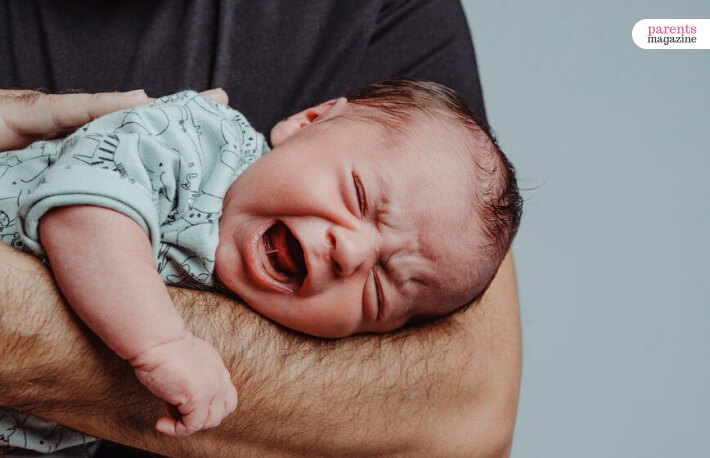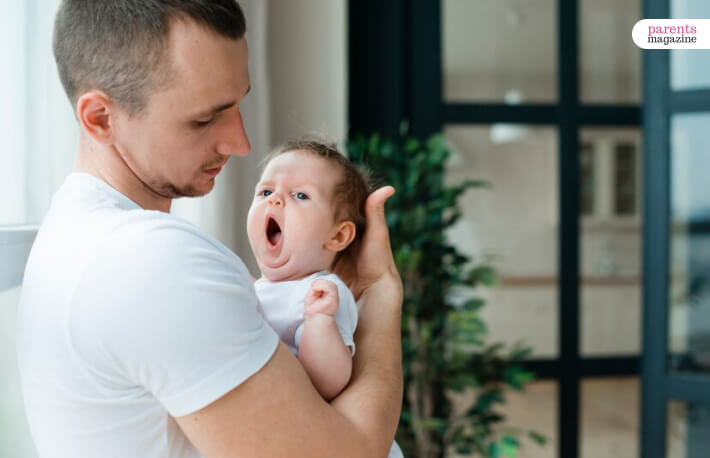
Baby Won’t Burp On Their Own? What Can You Do To Help Them?
Burping a baby is a part of their feeding routine. And it is one of the most important parts as well. When a baby is swallowing their food, there is a chance that air bubbles can get trapped in their stomach. This, in turn, can get them fussy and cranky and form gas if Baby won’t burp.
When you burp a baby, it removes some of the gas and relieves the pain. This also prevents baby’s excess spitting up and is important if the baby is already suffering from reflux. But sometimes, a baby won’t burp on their own, and that is when you have to intervene.
Saying that there is no hard and fast rule that a baby has to burp every time after they are fed. Some babies need a lot of burping, while some rarely need that. But to be precise, bottle-fed babies need burping more than those who are breastfed.
Babies who are bottle-fed tend to swallow a lot of air while they are feeding. However, not all babies are the same, and their requirements are also different. So, to know what your baby needs, you have to follow their cue.
Why Are Some Babies More Difficult To Burp Than Others?
Some babies are equipped well and burp on their own, while others need some extra coaxing to release those air bubbles. It is an indicator that your baby is growing as they learn to burp on their own. Even though burping is a natural reflex, the process becomes easier with age.

There are certain factors that contribute to the burping process. The fact that they learn how to get themselves out of an uncomfortable position, neck and back support, some more tummy time, and learning how to eat without taking a lot of air are some factors.
Another competitor that plays a strong part is the amount of air the baby has swallowed while you fed them. When the milk rushes to their mouth, they try to gulp it quickly, they take in quite a lot of air along with that. Having a strong letdown when you are nursing or bottles that have an incorrect flow is the reason behind this.
In such cases, the baby might burp almost instantly when you get them in the upright position. This might feel like they burped naturally, but this could be because of the consumption of the excess air. But most babies need help with burping.
What can happen if a baby won’t burp?
If you are concerned and worried about what can happen if your baby is not burping, then do not worry. The baby will be fine, and if they are not burping, they will pass the gas from the other end.

But for some babies, the case is not like that. They spit up in their crib or get fussy in their sleep and cry out of discomfort. This is when it becomes necessary to burp them. It is important to release the trapped air from their body.
Is it possible for a baby to choke if they are not burped?
It is often sad that babies who sleep on their backs have a tendency to choke if they vomit or spit up because they are not burped. So, it is important to burp them before putting them down on their back. But this is definitely a myth.
The actual fact is that babies swallow the fluid or cough up when they vomit or spit out when put on their backs. This is a reflex that keeps their airway clear. Studies show that there is not a commendable increase in the number of cot-related deaths because of choking. The most they can do is cry out of discomfort and wake up.
How often should you burp a baby?

Trapped air often gives them a sense of being full, even when the baby is not full, and have space for more food. When you are feeding a baby, it is better to burd them in between the feeding sessions. This will release the air and give them a sense of fullness.
If you put your baby down when they are showing symptoms of being full and do not try to burp them, there is a huge possibility that they will wake up in the middle of the night because of hunger.
If your baby keeps protesting when you are feeding them, then it is best to try to burp them and check if they have gulped in a lot of air bubbles, which might be causing them distress. So, you can question whether it is okay to put a baby to sleep without burping. It is better to get them burped, but it is not always necessary.
How to Burp Your Baby

When you are trying to burp a baby, pat them gently on their back repeatedly, and that would do the trick. Make sure that you cup your hands when patting them; do not keep your palms flat.
There are various positions that you can try, depending on which one is comfortable for the baby and you as well. But mostly, these three methods are used:

- Hold your baby close to you against your chest while sitting upright. Ensure that their chin is resting on your shoulders and support them with one hand. With your other hand, pat their back gently. Rocking slowly in a rocking chair and patting their back gently can also work.
- Sit up and hold your baby across your lap or on your knees. Support their head and chest with one and cradle their chin with your hand. Rest your palm on their chest and carefully grip their chin and not their throat. Then, pat them on the back.
- Get them laid on their belly on your lap. Support their head and make sure it is at a higher position than their belly. And gently pat their back.
What if they still don’t burp?
If you have tried everything and still the baby won’t burp, then it is time to change the positions. Wait till you have burped them before trying to feed them again. Make sure that you always burp them when the feeding time is over.

Keep them in the upright position for at least 10-15 minutes so that the milk does not come right back up. But there is nothing to worry about if your baby spits up a couple of times. Most of the time, it is more unpleasant for the parents than it is for the babies.
Sometimes, a wakes up in the middle of their sleep because of gas. When you put them up to burp and pat them on their back, they fall back to sleep. When they get older, they might not burp after every feeding. This generally means that they are not swallowing that much air now.
Babies who have colic might get gas when they swallow too much air while crying. This makes them even more uncomfortable. But if you are thinking of giving them some anti-gas drops, check with the pediatrician once.
READ ALSO:
Already have an account?
Sign In
Create your account
User added successfully. Log in








